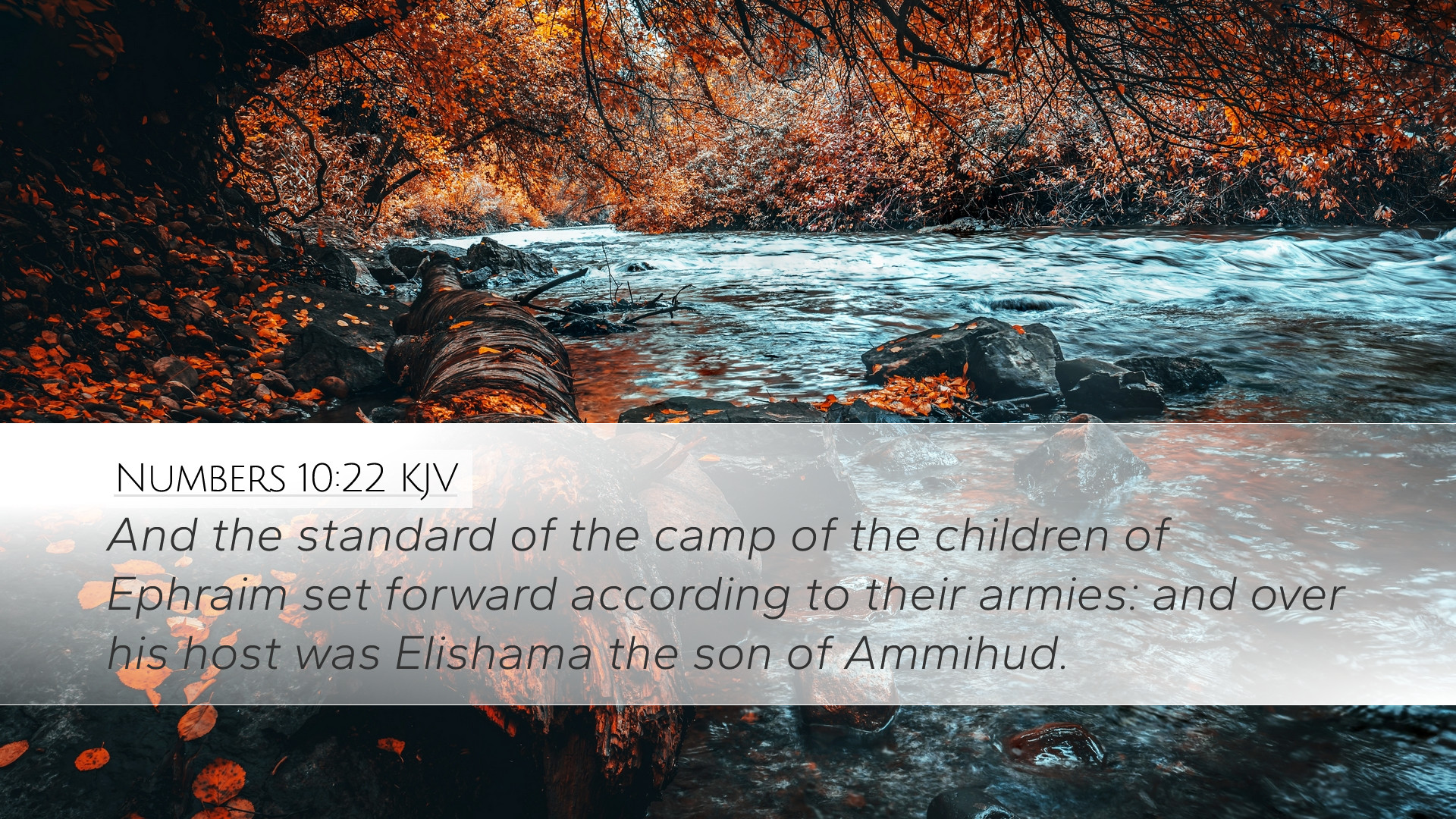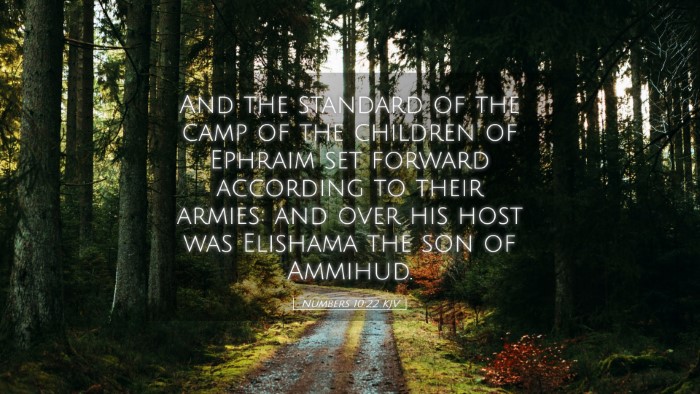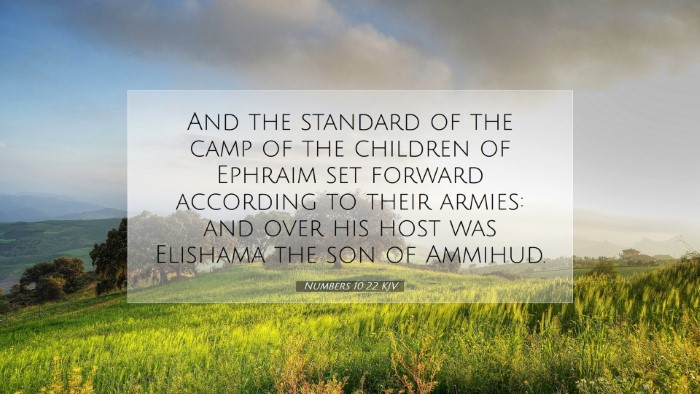Commentary on Numbers 10:22
“Then the tribe of Ephraim set out, with their banner, according to their companies; and Eliashib the son of Hamah, the son of Joseph, was over their army.”
Introduction
The verse under consideration is part of a significant narrative in the Book of Numbers, detailing the organization and movements of the Israelite camp during their wilderness journey. Numbers 10:22 introduces the specific tribe of Ephraim and highlights the critical roles played by leaders in the Israelite community. This commentary will explore the implications of this verse, drawing from insights provided in public domain commentaries.
Historical Context
The people of Israel had recently been delivered from Egypt and were navigating the wilderness under divine guidance. The order established among the tribes is indicative of God’s meticulous planning and the essential role of leadership during their journey to the Promised Land.
The Tribe of Ephraim
According to Matthew Henry, the tribe of Ephraim, being the second son of Joseph, held a significant position among the tribes of Israel. Ephraim was not only favored for numerical strength but also for leadership capabilities:
- Joseph’s Blessing: Ephraim received a notable blessing from Jacob, which foresaw his tribe’s prominence.
- Symbol of Leadership: As seen in this chapter, Ephraim often took precedence in military leadership, showing their readiness to bear responsibilities.
Significance of the Banner
The mention of a "banner" is particularly significant. Albert Barnes notes that banners served not only as symbols of identification for the tribes but also as rallying points for the people. This raised an important aspect of unity among the tribes. The banner served several functions:
- Identification: It marked the authority and identity of the tribe as they traveled together.
- Unity in Movement: It facilitated organization during their march, ensuring that each tribe could follow its leadership.
- Covenantal Memory: The banners also reminded the people of God's covenant and the promise that lay ahead.
Leadership and Hierarchical Structure
In the verse, Eliashib is mentioned as a leader over Ephraim's army, which emphasizes structured leadership. Adam Clarke elaborates that effective leadership was vital as the Israelites were not just a family but a nation in formation. The qualifications of Eliashib and his lineage are noteworthy:
- Ancestry: Being the son of Hamah and a descendant of Joseph highlights God's providential choice in leadership.
- Preparation for Battle: Leaders like Eliashib prepared the people for the challenges they would face, both spiritually and physically.
- Role of Tribes: Each tribe had distinct responsibilities and roles; Ephraim's positioning indicated its recognition as a primary force in the campaigns ahead.
Theological Implications
This verse not only records historical facts but also carries vital theological principles. Matthew Henry suggests that the effectiveness of a nation stems from its leadership and collective commitment to God. The following points outline theological implications derived from the verse:
- Divine Order: The organized movement of tribes illustrates God's intention for order and not chaos among His people.
- Community Responsibility: The Jewish community's structure implies that every member has a role that contributes to the collective mission.
- Leadership from God: Leadership is ordained by God and should be rooted in His guidance and principles, as seen in Eliashib’s appointment.
Conclusion
Numbers 10:22 serves as a profound reminder of the importance of leadership, unity, and divine guidance in the life of God’s people. By reflecting on the tribe of Ephraim and the role of Eliashib, contemporary readers can glean essential truths about the nature of community in spiritual journeys. As pastors, students, theologians, and scholars engage with this passage, they are invited to consider how similar themes of leadership and organization manifest in their own contexts today.


